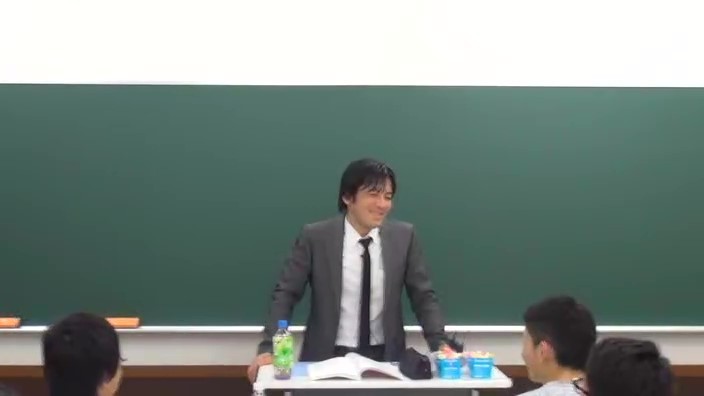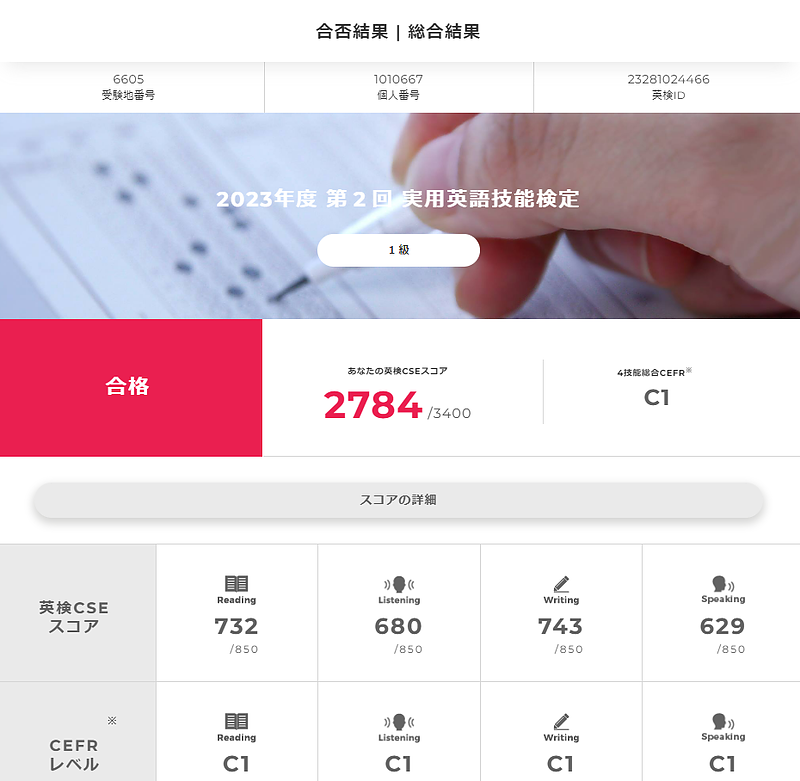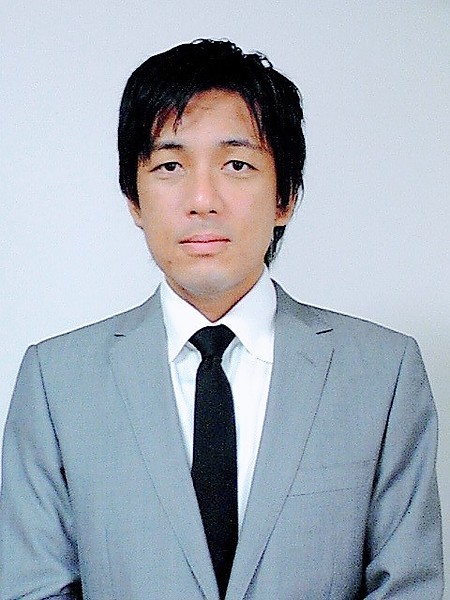英文法5分ドリル【比較②】
Health is better than wealth. We ( ) be too careful about our health.
① cannot
② may
③ must
④ should not
<cannot … too ~>
「どんなに ~ しても…しすぎることはない」
言い換えると,
We cannot overestimate our health.
=It is impossible for us to overestimate our health.
cf.) I cannot thank you enough.
(いくらお礼をしても足りないくらいです)
正解:①
「健康は富に勝る。健康に注意しすぎることはない」
Health is better than wealth. We cannot be too careful about our health.
Health surpasses wealth in importance.
Prioritize health over wealth.
It's crucial to be extremely cautious about our health.
There's no limit to how careful we should be about our health.
I ( ) well on yesterday’s test, but I don’t know the results yet.
① must do
② have done
③ might have done
④ may do
<might(may) have done> 「~したかもしれない」 了時制は yesterday と併用不可で②は失格。
正解:③
「昨日のテストよくできたかもしれないけど, まだ結果はわからない」
I might have done well on yesterday’s test, but I don’t know the results yet.
I potentially performed well on the test, but the results remain unknown.
There's a chance I did well on the test, but I'm unaware of the outcome.
<助動詞+have+done> について例文を挙げる。
◇ 推量 (過去の事実に関するもの)
✰ must have done
「~したにちがいない」
The work must be hard for him.
その仕事は彼には難しいにちがいない。
The work must have been hard for him.
その仕事は彼には難しかったにちがいない。
✰ may have done
「~したかもしれない」
It may be true.
それは本当かもしれない
It may have been true.
それは本当だったかもしれない。
✰ cannot have done
「~したはずがない」
The story cannot be true.
その話は本当のはずがない。
The story cannot have been true.
その話は本当だったはずがない。
◇ 推量 (実現されなかった事柄に関するもの・後悔)
✰ should have done
「~すべきだったのに(しなかった)・~したはずだ」
You should have apologized for your rudeness.
君は無礼を詫びるべきだったのに。
They should have arrived there by now.
彼らは今ごろそこへ着いたはずなのに。
✰ ought to have done
「~すべきだったのに(しなかった)・~したはずだ」
You ought to have listened more carefully.
君はもっと注意深く聞くべきだったのに。
You ought not to have listened to him.
彼の言うことを聞くべきではなかったのに。
✰ need not have done
「~する必要がなかったのに(した)」
You needn't have hurried.
君は急ぐ必要はなかったのに。
✰ had better have done
「~した方がよかったのに(しなかった)」
You had better have hurried.
君は急いだ方がよかったのに。
When I was in Salem, I ( ) often play tennis with John.
① ought to
② might
③ should
④ would
would (often) do 〔過去の習慣〕「よく ~ したものだ」
正解:④
「セーラムにいた頃, よくジョンとテニスをやったものだ」
When I was in Salem, I would often play tennis with John.
During my time in Salem, I used to frequently play tennis with John.
In Salem, I had a habit of playing tennis with John.
It is essential that every child ( ) the same educational opportunities.
① are having
② have
③ is having
④ to have
<It is essential that ~ >「~はとても重要だ」
that 節内は should do または原形。
正解:②
「すべての子供が同じ教育機会を持つことは重要だ」
It is essential that every child have the same educational opportunities.
Every child having equal educational opportunities is crucial.
The necessity lies in ensuring identical educational chances for every child.
⑴ It is ... that S’ + should / 直説法
natural, proper, admirable, amazing, annoying, disappointing, odd, regrettable, strange, surprising
⑵ It is ... that S+ should / 原形動詞
necessary, essential, desirable, important, imperative, right, advisable
⑶ S1 + V + that S2 + should / 原形動詞
demand, order, propose, suggest, recommend, request, require, insist, advise, decide
My father insisted I ( ) go to see the place.
① might
② ought
③ should
④ would
insist は that 節内に should do または原形。
that はここでは省略されている。
正解:③
「父は私がその場所を見に行くことを要求した」
My father insisted I should go to see the place.
My father was adamant that I visit the location.
My father strongly recommended my visit to the place.
I often told you to do your duty, but you ( ) not listen to me.
① had
② might
③ should
④ would
主語の拒絶を表す用法としてのwill not。ここでは過去形。
正解:④
「いつも自分の義務を果たすように言っていたのに,君は断固私に耳を貸そうとしなかった」
I often told you to do your duty, but you would not listen to me.
I frequently advised you to fulfill your responsibilities, yet you disregarded my words.
Despite my repeated instructions to do your duty, you chose not to heed them.
will :
used to express your intentions
★ 未来
(a) 単純未来「~でしょう・~です」
I will be sixteen next birthday.
次の誕生日で16になります。
(b) 意志未来「~するつもり・~しよう」
I will give you a book.
君に本をあげよう。
★ "Will you ~?"
Will you go to America next year?
来年アメリカへ行くつもりなのですか。
Will you make tea for us?
私たちにお茶を入れてくれませんか。
Will you have tea with us?
一緒にお茶を飲みましょうか。
★ 現在の推量
Mom will be downstairs now.
お母さんは下にいるでしょう。
★ 現在の習慣・習性・能力 「(どうしても)~するものだ」
Accidents will happen.
事故はどうしても起こるものだ。
Children will be mischievous.
子供はいたずらっぽいものだ。
You ( ) be a good athlete to have run a mile in such a short time.
① won’t
② shall
③ cannot
④ must
to have …time は不定詞の副詞的用法.
話し手の〔判断の根拠〕を表しているため,
主文に「~にちがいない」
という話し手の〔判断〕を示す表現が必要。
must「~にちがいない」〔確信的判断〕
正解:④
「こんな短時間で走り去ったなんて,君は優秀な陸上選手にちがいない」
You must be a good athlete to have run a mile in such a short time.
Running a mile in such a brief period implies you're a skilled athlete.
Your ability to run a mile in such a short duration suggests you're a proficient athlete.
We ( ) walk home as try to catch a taxi here.
① must as well
② might as well
③ should as well
④ would as well
< may[might] as well >
⑴「~するくらいなら…するほうがよい」
⑵「~するのは…するようなものだ」
正解:②
「ここでタクシーを拾うくらいなら家まで歩いて帰ったほうがよい」
We might as well walk home as try to catch a taxi here.
Walking home seems just as reasonable as attempting to hail a taxi here.
Trying to catch a taxi here is as viable as walking home.
I suggested to Mary ( ) with me to collect empty cans on the street, but she said she was too busy.
① come
② that she come
③ that she had come
④ to have come
suggest「提案する」
that節に should do または原形を取る。
that 節内は時制の一致を受けない。
正解:②
「メアリーに通りの空き缶拾いを一緒にしようと提案したが,忙しすぎて行けないと彼女は言った」
I suggested to Mary that she come with me to collect empty cans on the street, but she said she was too busy.
I proposed to Mary that she accompany me to gather empty cans from the street, but she declined, citing busyness.
I recommended to Mary that she join me in collecting empty cans from the street, but she declined due to being occupied.
A: We’ve been driving in circles for an hour. Where are we?
B: I don’t know. Let’s stop at the next gas station.
A: Yeah. At least ( ).
B: Why didn’t you get one before we left?
① they should have a map
② they should know
③ we can ask
④ you can get something
should, ought toは〔義務〕を表す.
また「はずである」という訳で示されるような
〔推量〕も表す。
本問では空所の後の one が示すものを考える。
He should be here any minute.
(彼はもうすぐここに来るはずです)
正解:①
A : 同じ所を1時間も周っているよ.今どこなの.
B : わからない.次のガソリンスタンドに寄ってみよう.
A : そうだね。少なくとも地図くらいあるはずだね。
B : どうして持ってこなかったの.
A: We’ve been driving in circles for an hour. Where are we?
B: I don’t know. Let’s stop at the next gas station.
A: Yeah. At least they should have a map.
B: Why didn’t you get one before we left?
We've been driving around aimlessly for an hour. Where are we?
I'm uncertain. Let's halt at the upcoming gas station.
Yeah, they ought to have a map at least.
Why didn't you acquire one before we departed?
I tried to take our dog out of our house, but he ( ) go out.
① were to
② had to
③ might not
④ would not
would not「どうしても ~ しようとしなかった」〔拒絶〕
正解:④
「外に連れ出そうとしたけど、犬はどうしても行こうとしなかった」
I tried to take our dog out of our house, but he would not go out.
I attempted to get our dog out of the house, but he refused to leave.
I tried to remove our dog from the house, but he resisted leaving.
would
❶〔時制の一致〕
⒜《単純未来》
He said he would be very pleased.
=He said,“I will be very pleased.”
(彼は本当に嬉しく思うと言った)
⒝《意志未来》
He said he would do his best.
=He said, “I will do my best.”
(彼は,ベストを尽くしますと言った)
❷ 〔現在の推量〕
「(たぶん)~だろう」
That would be fine.
(それで結構だと思います)
❸ 〔現在の願望〕
「(できれば) ~ したいと思う」
I would have you know that I am ill.
(私が病気だということをあなたに知っていただきたい)
❹ 〔過去の習慣〕
「よく ~ したものだ」
He would often go fishing in the river when he was a child.
(子供のころ彼はよく川へつりに行ったものだ)
cf.) used to〈長期的〉
「かつては~であった(現在はそうではない)」
There used to be a bookstore at the corner.
昔はこの角には本屋があった (今はない)。
❺ 〔過去の強い拒絶〕(notとともに)
「どうしても ~ しようとしなかった」
She wouldn’t help him.
(彼女はどうしても彼を手伝おうとはしなかった)
❻ 〔過去の推量〕
「~だっただろう」
She would be 90 when she died.
(死んだとき彼女は90歳にはなっていただろう)
❼ 〔仮定法過去〕
「 ~ するだろうに」
A man of integrity would never tell a lie.
(高潔な人なら,決してうそはつかないだろうに)
❽ 〔仮定法過去完了〕
「 ~ しただろうに」
He would have told me if he had known it.
(彼がそれを知っていたら,私に言ってくれただろうに)
❾ 〔丁寧,控えめ〕
Would you help me, please?
(手を貸していただけますか)
should
❶ 〔時制の一致〕
I said Bob should have a nice present.
=I said,“Bob shall have a nice present.”
(私はボブにすてきなプレゼントをやろうと言った)
❷ 〔義務・忠告〕「~すべきだ」(=ought to)
You should apologize for your rudeness.
(君は自分の非礼を詫びるべきだ)
❸ 〔過去の果たせなかった義務〕
「~すべきだったのに (しなかった)」
You should have done your homework.
(君は宿題をすべきだったのに)
❹ 〔当然〕「~するはずだ」
If you leave now, you should get there by five o’clock.
(今出発すれば5時にはそこに着くはずだ)
❺ 〔要求/提案/決定/命令/主張 を表す that 節内〕
I demanded that he (should) pay.
(私は彼に支払いを要求した)
この種の動詞としては,
order, decide, determine, request, demand, ask, intend, suggest, proposeなど
❻ 〔〈判断・感情〉を表す that 節内〕
〈It is that S’ should ~〉
I demanded that he should pay.
=My demand was that he should pay.
=I said, “It is necessary that he should pay.”
(彼は支払いをする必要がある,と私は言った)
この種の形容詞としては,
natural, necessary, important, essential, proper, no wonder, a pity,など
❼ 〔驚き・意外〕「~するとは・一体~」
Why should they say such a thing?
(一体彼らはどうしてそんなことを言うのか)
❽ 〔仮定法過去〕「~するだろうに」
I should be glad to do so if I could.
(できるなら,私は喜んでそうするだろうに)
❾ 〔仮定法過去完了〕「~しただろうに」
I should have gone if you had asked me.
(君が私に頼んだのなら,私は行っただろうに)
❿ 〔if節中〕「万一~すれば」
If I should live to be a hundred, I will never understand Picasso.
(たとえ100歳まで生きても,私はピカソを理解できないでしょう)
could
❶ 〔時制の一致〕
She said she could swim.
=She said, “I can swim.”
(彼女は泳げると言った)
❷ 〔過去の能力〕
「~できる状態だった」
She could swim when she was five.
(彼女は5歳のとき泳ぐことができた)
★『~できた』= ‘could’ ではない!
couldは過去に何かをする能力があったこと,
何事かがなされる可能性があったことを表すだけで,
「とうとう彼は入試に合格できた」のように
1度だけ何かができたことを表すときには使えない。
× Usually I have to stand on the train, but this morning I could get a set.
○ Usually I have to stand on the train, but this morning I got a seat.
× By studying really hard, at last he could pass the entrance examination.
○ By studying really hard, at last he managed to pass the entrance examination.
「能力があって,実際にその動作を行った」という過去の1回の動作,
行為を表す場合は, was able toを 用いるのが普通。
行為が達成できなかった場合にはどちらでも使用可。
○ I wasn’t able to [couldn’t] find my purse anywhere.
(私の財布はどこにも見あたらなかった)
❸ 〔現在の推量〕「~かもしれない」
This could be the last chance.
(これが最後のチャンスかもしれない)
❹ 〔過去の推量〕「~だったかもしれない」
His opinion could have been right.
(彼の意見は正しかったのかもしれない)
❺ 〔仮定法過去〕「~できるだろうに」
We could win the game if we tried harder.
(もっと一生懸命やれば試合に勝てるだろうに)
❻ 〔仮定法過去完了〕「~できただろうに」
She could have done it if she had wished to.
(やりたいと思えば,彼女はそれができたのに)
❼ 〔丁寧,控えめ〕
Could you tell me the reason?
(理由をおっしゃって頂けませんか)
❽ 〔可能性〕「~でありうる」
“Is it true that He’s bought a Rolls Royce? “ “It could be.”
(ロールスロイスを買ったんだって)(かもね)
might
❶ 〔時制の一致〕
He said he might go.
=He said,“I may go.”
(行くかもしれないと彼は言った)
❷〔仮定法過去〕
「~するかもしれないのだが」
It might be better if we told him the whole story.
(彼に洗いざらいしゃべった方がいいのかもしれないのだが)
❸〔仮定法過去完了〕
「~したかもしれなかったのだが」
I might have been a millionaire.
(私は百万長者になっていたかもしれないのだが)
❹ 現在の推量 ★mayより可能性が低い
「~かもしれない」
It might rain.
(雨が降るかもしれない)
❺ 〔過去の推量〕★may have doneとほぼ同義
「~したかもしれない」
She might have been happier.
(彼女はもっと幸せになっていたかもしれない)
❻ 〔仮定法過去完了〕
「~できただろうに」
She could have done it if she had wished to.
(やりたいと思えば,彼女はそれができたのに)
❼ 〔丁寧,控えめ〕
Might you tell me the reason?
(理由をおっしゃって頂けませんか)
❽ 〔容認〕
「~してさしつかえない」
Life may be compared to a voyage.
(人生は航海にたとえてよかろう)
❾ 〔譲歩〕
「たとえ~でも」
Whatever may happen, I will not be surprised.
(どんなことが起こっても,私は驚かない)
❿ 〔祈願〕
「~でありますように」
May all your Christmases be white!
(ホワイトクリスマスでありますように)
【 音読基本英文 】
Health is better than wealth. We cannot be too careful about our health.
Health surpasses wealth in importance.
Prioritize health over wealth.
It's crucial to be extremely cautious about our health.
There's no limit to how careful we should be about our health.
I might have done well on yesterday’s test, but I don’t know the results yet.
I potentially performed well on the test, but the results remain unknown.
There's a chance I did well on the test, but I'm unaware of the outcome.
When I was in Salem, I would often play tennis with John.
During my time in Salem, I used to frequently play tennis with John.
In Salem, I had a habit of playing tennis with John.
It is essential that every child have the same educational opportunities.
Every child having equal educational opportunities is crucial.
The necessity lies in ensuring identical educational chances for every child.
My father insisted I should go to see the place.
My father was adamant that I visit the location.
My father strongly recommended my visit to the place.
I often told you to do your duty, but you would not listen to me.
I frequently advised you to fulfill your responsibilities, yet you disregarded my words.
Despite my repeated instructions to do your duty, you chose not to heed them.
You must be a good athlete to have run a mile in such a short time.
Running a mile in such a brief period implies you're a skilled athlete.
Your ability to run a mile in such a short duration suggests you're a proficient athlete.
We might as well walk home as try to catch a taxi here.
Walking home seems just as reasonable as attempting to hail a taxi here.
Trying to catch a taxi here is as viable as walking home.
I suggested to Mary that she come with me to collect empty cans on the street, but she said she was too busy.
I proposed to Mary that she accompany me to gather empty cans from the street, but she declined, citing busyness.
I recommended to Mary that she join me in collecting empty cans from the street, but she declined due to being occupied.
A: We’ve been driving in circles for an hour. Where are we?
B: I don’t know. Let’s stop at the next gas station.
A: Yeah. At least they should have a map.
B: Why didn’t you get one before we left?
We've been driving around aimlessly for an hour. Where are we?
I'm uncertain. Let's halt at the upcoming gas station.
Yeah, they ought to have a map at least.
Why didn't you acquire one before we departed?
★本記事の流用を禁じます
今後も英語に関する情報を発信していきます。









